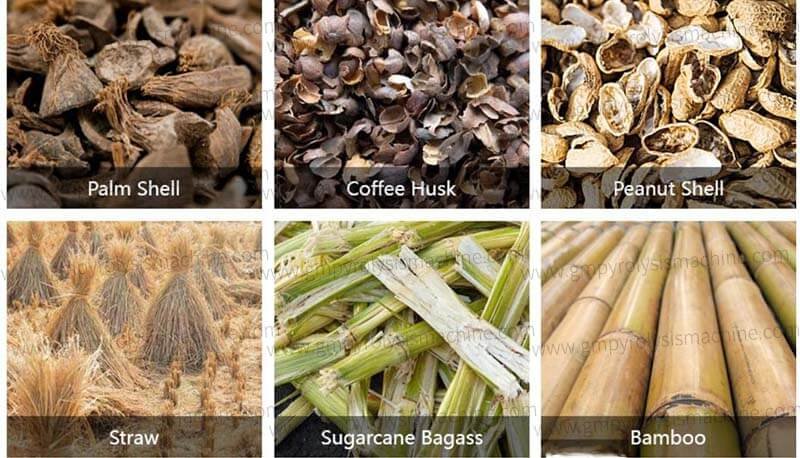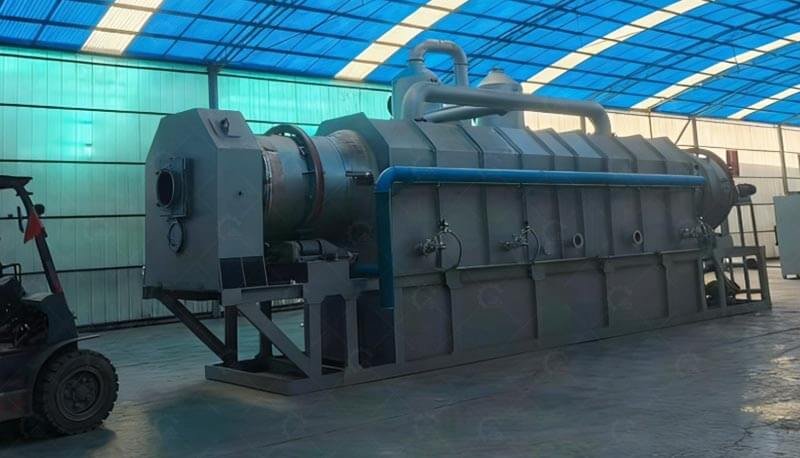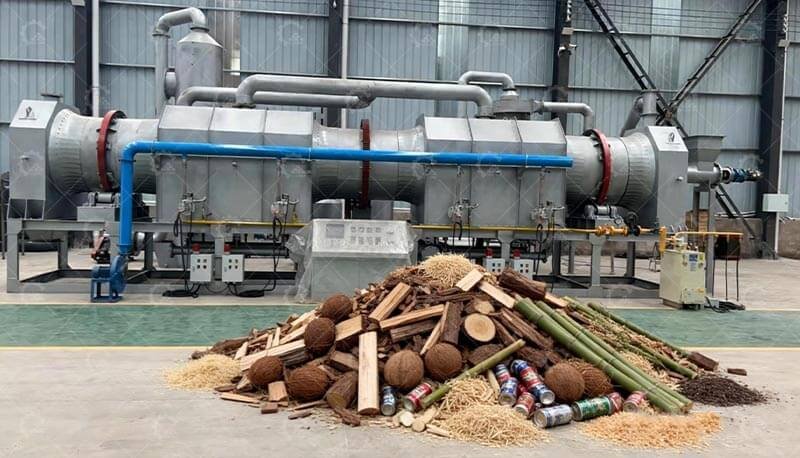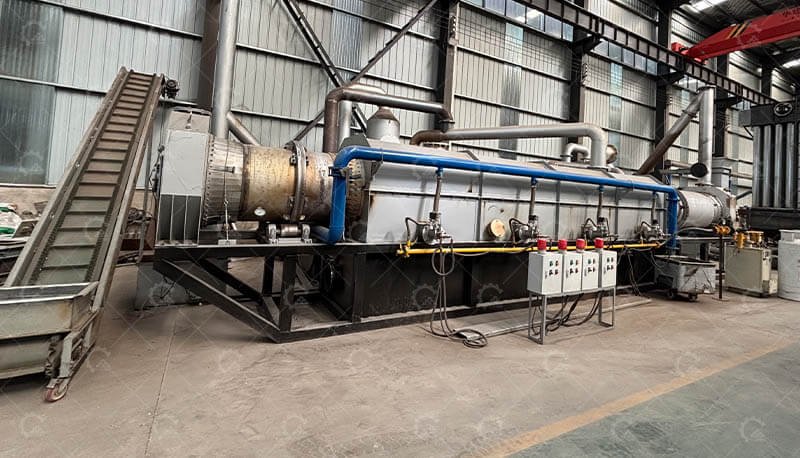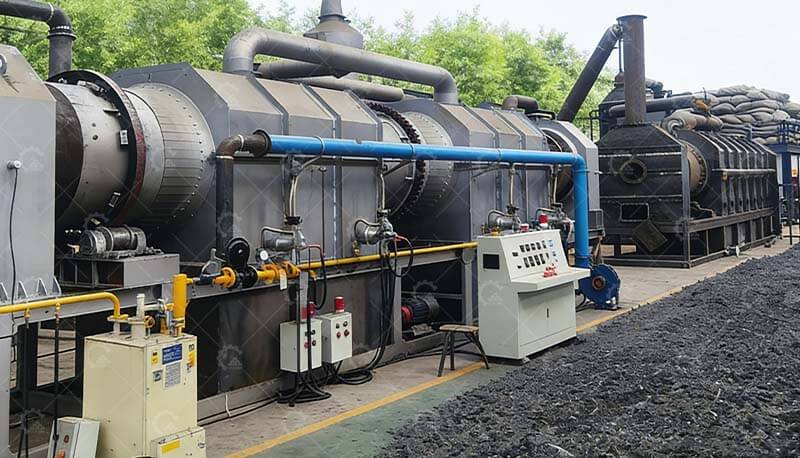Understanding the continuous charcoal carbonization furnace cost is crucial for biomass processors seeking efficiency. But price is just one piece. Let’s break down what impacts investment and the returns you can expect.
Key Performance Factors Impacting Value
1. Raw Material Handling & Flexibility
A top-tier high efficiency continuous charcoal carbonization furnace isn’t picky. It efficiently processes diverse feedstocks:
Wood: Sawdust, chips, shavings, branches, even certain types of bark (pre-crushed/sized).
Agricultural Waste: Coconut shells, rice husks, palm kernel shells, olive pits, corn cobs, bamboo.
Process: Effective pre-processing (crushing, drying to optimal 10-20% moisture) is vital for smooth feeding and high-quality charcoal.
2. Maximizing Charcoal Yield & Efficiency
This is where ROI shines. Modern automated biomass carbonization systems excel in:
High Recovery Rates: Advanced pyrolysis technology and precise temperature control (typically 400-600°C) maximize solid charcoal yield from your feedstock, often achieving 25-40% depending on material and moisture.
Energy Recovery: Combustible syngas produced during carbonization is recycled to fuel the furnace, drastically reducing external energy needs (like LPG or diesel) and operating costs.
Reduced Waste: Efficient systems minimize unreacted material or excessive ash.
3. The Continuous Carbonization Advantage
Unlike batch kilns, a continuous carbonizing machine for charcoal production offers:
Uninterrupted Operation: Feed in material and discharge charcoal simultaneously, 24/7. This translates to vastly higher daily output.
Consistent Quality: Precise, automated control over temperature, residence time, and oxygen levels ensures uniform charcoal properties batch after batch.
Superior Labor Efficiency: Minimal manual intervention required compared to loading/unloading batch kilns.
Enhanced Environmental Control: Integrated gas treatment systems (scrubbers, condensers) effectively capture tar and treat emissions, meeting stricter environmental standards.
4. Tailored Charcoal Output
The final product determines your market. A versatile continuous carbonization reactor allows control over:
Fixed Carbon Content: Higher temperatures generally yield higher fixed carbon, desirable for metallurgy or activated carbon.
Volatile Matter: Lower VM improves burning stability (ideal for BBQ charcoal).
Moisture & Ash Content: Controlled cooling and efficient gas flow minimize these.
Particle Size & Shape: Determined by feedstock size and post-processing (crushing, briquetting).
Investing in Your Future: Understanding the Cost Factors
The price of a continuous charcoal carbonization furnace varies significantly based on:
Capacity (Tons/Day): Small units (1-2 TPD) cost less than large industrial systems (10+ TPD).
Automation Level: Fully PLC-controlled systems command a premium over semi-automatic ones.
Material & Build Quality: High-grade stainless steel for critical components (reactor, gas lines) ensures longevity but increases cost.
Emission Control Systems: Sophisticated scrubbing and condensation units add cost but are essential for compliance.
Customization: Tailoring the system for specific feedstocks or output requirements.
Manufacturer Expertise & Reputation: Established suppliers with proven technology often have higher prices but lower risk.
The Bottom Line: Value Over Sticker Price
While the initial investment in a continuous charcoal carbonization furnace is higher than traditional batch methods, the true cost per ton of charcoal produced is often significantly lower. Factor in:
Massively Increased Production Volume
Dramatically Reduced Labor Costs
Minimal External Fuel Costs (thanks to syngas recycling)
Higher, More Consistent Charcoal Yields
Premium Quality Output Commanding Better Prices
Lower Environmental Compliance Risks
Ready to Calculate Your ROI?
A modern continuous charcoal carbonization furnace is an investment in scalable, efficient, and profitable charcoal production. To get an accurate quote tailored to your specific needs (capacity, feedstock, charcoal specifications), consult directly with reputable manufacturers.

